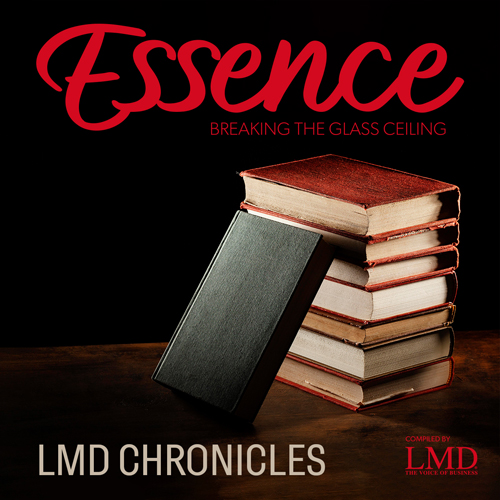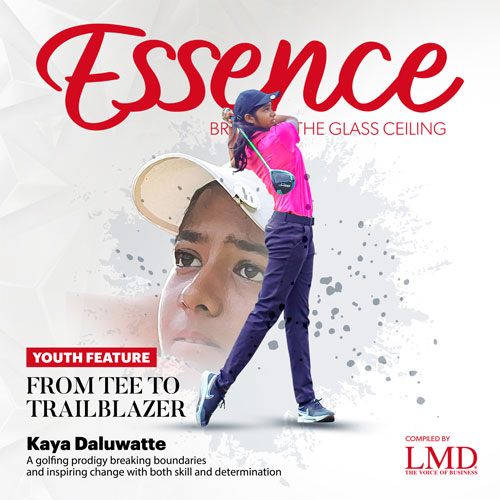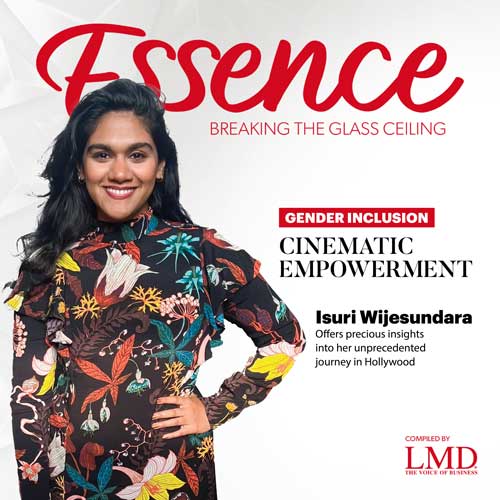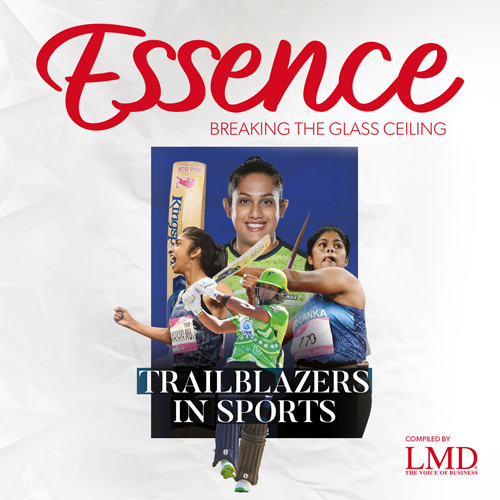CHANGE MAKER
PIONEERING PATH IN SCIENCE
Dr. Hasini Jayatilaka highlights her journey of exploring science, earning recognition and garnering empowerment

A Sri Lankan scientist presently attached to Gilead Sciences, where she serves in the Global Commercial Strategy and Operations division, Dr. Hasini Jayatilaka discovered a pivotal signalling pathway that controls how cancer cells metastasise through the body – and importantly, a way to block it.
This led to the development of new therapeutics aimed at combatting tumour growth and metastatic progression. Having been recognised for her exceptional contributions, she earned a coveted spot on Forbes magazine’s annual 30 Under 30 list in 2019, celebrating young visionaries who are reshaping the world.
Born in Australia and nurtured in Colombo, Hasini embarked on her academic journey in 2009, relocating to the US to pursue a bachelor’s degree followed by a PhD in chemical and biomolecular engineering at Johns Hopkins University.
Here are extracts from our exclusive interview.
Q: What led you to pursue a career in science?
A: My interest in science originated from my curiosity about nature. I spent a significant amount of time outdoors; and I remember wondering and enquiring about the formation of specific structures in plants, and adaption of wildlife to surroundings.
In school, I excelled in biology, physics, chemistry and mathematics, which led me to pursue a degree in engineering at university. My undergraduate experiences, particularly in cancer research, led me to pursue a PhD in chemical and biomolecular engineering from Johns Hopkins University, which was followed by a postdoctoral fellowship at Stanford University.
Through my time in academia, I developed a deep interest in drug development, which enabled me to work in the pharmaceutical industry, and support the development of drugs and address unmet needs in patients around the world.
Q: Were there challenges you had to encounter in this journey especially during your cancer research – and if so, how did you overcome them?
A: The biggest hurdle I had to face was myself. At different points in time, self-doubt and fear made me hesitate and question my path forward. Working with mentors and coaches helped me to learn that where there is a will, there is a way.
Persistence, hard work, consistency, kindness and empathy have enabled me to address the self-doubt and fear, and continue pursuing my goals and dreams.
Q: As a successful woman in science, how do you believe your work can inspire and empower other women?
A: I hope that my journey and work can inspire women to continue pursuing their interests and dreams while balancing the responsibilities we need to shoulder at different stages of our lives.
My hope is that girls and women dream big and persevere, and recognise that the world is their oyster.
Now more than ever, girls and women have an incredible opportunity to have an enormous impact and advocate for change. Women need to be active participants of movements that create a better society for all.
Q: How did it feel to be recognised on the Forbes 30 Under 30 list in Science in 2019?
A: It felt surreal. When I learned that I was a recipient, I was pretty surprised. And I think that to this day, I have a little bit of imposter syndrome for this.
It’s a wonderful honour, and a great way for the work to be recognised and highlighted. I’m grateful to be in great company as a recipient of the Forbes 30 under 30 title.
Q: In what way has this recognition influenced your career?
A: I view this as any other accolade. And I try to stay focussed on the path of pursuing opportunities that inspire me, and allow me to grow and learn.
Q: What initiatives or advice would you recommend for creating a more inclusive and supportive environment for women in general?
A: To begin with, it would be good for leadership to make a conscious decision to have a good balance of women and men in organisations, where people are given equal opportunities and pay regardless of their gender or other demographics.
This top-down approach can be complemented by mentorship and training opportunities that enable women to leverage their strengths, and identify areas for improvement.
It’s also important to create spaces where women can mentor other women, and create a sense of community where they can share their wins and challenges openly without judgement.
Q: Balancing a leadership role and personal life can be quite challenging. How do you manage your work-life balance?
A: Prioritise, prioritise, prioritise. A good work-life balance requires a lot of task lists and calendar blocks/invites to ensure that I’m keeping pace with all my responsibilities, and recharging my batteries by participating in activities that I love – such as playing tennis, running, and spending time with my family and friends.
I have also identified that it’s good to establish healthy boundaries, and set expectations when it comes to my personal and professional life.






